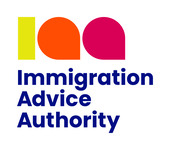Table of Contents
Introduction
Business owners seeking to expand into the UK must decide which immigration route best suits their situation. Entrepreneurs can between UK self-sponsorship vs innovator founder visa among other routes.
Both routes offer pathways to establishing businesses in the United Kingdom. However, they differ significantly in requirements, processes, costs, and long-term implications. Understanding these differences is essential for making informed decisions that align with individual circumstances and business objectives.
Read our Guide to the Self-Sponsorship Visa
Fundamental Differences between Self-Sponsorship and Innovator Founder Visa
The self-sponsorship route operates through the established Skilled Worker visa framework, requiring applicants to establish a UK company, obtain a sponsor licence, and sponsor themselves as skilled workers.
This approach emphasizes:
- business establishment and
- operational capacity, focusing on proven business concepts
The Innovator Founder visa was specifically designed to attract entrepreneurs with new or existing businesses that are:
- innovative,
- viable,
- scalable
Innovator Founder applicants must secure endorsement from Home Office-approved organizations evaluating business plans against innovation, viability, and scalability criteria.
Self-sponsorship applicants face no endorsement requirement but must demonstrate business viability through sponsor licence approval and ongoing compliance.
The business establishment timeline differs significantly, with self-sponsorship requiring operational business establishment before visa application, while Innovator Founder visas can be obtained based on business plans implemented after UK arrival.
Investment and Financial Requirements
Financial requirements for UK self-sponsorship vs innovator founder visa also differ. Self-sponsorship financial requirements include company establishment costs, sponsor licence fees, visa application fees, and sufficient funds demonstrating business viability and personal maintenance. Total investment can range from £50,000 to £200,000, depending on the nature of business venture and operational costs.
Applicants for the Innovator Founder visa must have funds of at least £1,270.
Ongoing financial obligations vary significantly, with self-sponsorship requiring continuous salary payments and sponsor licence compliance costs, while Innovator Founder visa holders face business development milestones and progress reporting requirements.
Application Process and Timeline
Application processes for UK self-sponsorship vs innovator founder visa involve multiple stages with different complexity levels. From initial planning to visa approval, the self-sponsorship process can take up to six months.
Innovator Founder applications begin with business plan development and securing endorsement. Tnis can take three to six months. Once endorsement is secured, visa applications typically process within eight weeks. Total timeline is often shorter than self-sponsorship but depends heavily on securing endorsement.
Preparation requirements differ substantially, with self-sponsorship requiring operational business establishment including premises, systems, and compliance procedures. Innovator Founder applications focus on business plan development, market research, and endorsement acquisition without requiring operational business establishment before application.
Ongoing Obligations and Flexibility
Ongoing obligations in UK self sponsorship vs innovator founder visa comparison differ significantly in nature and complexity.
Self-sponsorship ongoing obligations focus on sponsor licence compliance, requiring comprehensive record maintenance, regular Home Office reporting, and adherence to complex monitoring requirements. These obligations continue throughout the visa period.
Innovator Founder visa holders face business development milestones and progress reporting requirements rather than sponsor licence compliance. They must demonstrate progress toward business plan objectives, maintain investment levels, and report business development activities to endorsing bodies.
Self-sponsorship offers greater operational flexibility once compliance systems are established. Innovator Founder visas may restrict business pivoting or significant plan changes without endorsing body approval.
Settlement and Long-term Prospects
Settlement is an important consideration for choosing UK self sponsorship vs innovator founder visa decisions. Self-sponsorship settlement follows the standard Skilled Worker pathway, requiring five years continuous residence before indefinite leave to remain eligibility. The route provides predictable settlement timelines with clear criteria for qualifying residence periods.
Innovator Founder visa settlement provisions offer accelerated pathways for successful entrepreneurs, with potential settlement eligibility after three years for applicants meeting specific business development criteria including job creation, revenue generation, or investment attraction targets.
Both routes allow spouses and children under 18 to apply for dependent visas. Dependent family members can work without restrictions and access education and healthcare services through the Immigration Health Surcharge system.
| Aspect | Self-Sponsorship (Skilled Worker via your own UK company) | Innovator Founder Visa |
|---|---|---|
| Official visa category? | No – it’s a strategy using the Skilled Worker route via your own sponsor company | Yes – a standalone Innovator Founder visa |
| Core requirement | Set up/control a UK company, get a Worker sponsor licence, issue yourself a CoS, meet Skilled Worker salary/code rules | Get an innovative, viable, scalable business endorsed by an approved body |
| Endorsement needed? | No | Yes – endorsement fee + mandatory check-ins |
| Innovation test? | Not required (business must be genuine/legal) | Mandatory “innovative, viable, scalable” criteria |
| Minimum investment set by rules? | None specified, but you need funds to run the business and pay your qualifying salary | No fixed amount now; must satisfy endorsing body you can deliver the plan |
| Salary / role threshold | Must meet Skilled Worker thresholds (e.g., £38,700 or going rate, whichever is higher) | No set salary threshold; you support yourself through your venture |
| Key government fees | Sponsor licence (£574/£1,579), CoS (~£525), Immigration Skills Charge (£364/£1,000 per year), visa fee + IHS | Visa fee (~£1,274/£1,590), endorsement £1,000 + £500 check-ins, IHS |
| Typical processing time | Licence: up to 8 weeks (or 10 working days with priority); visa: ~3–8 weeks | Visa: ~3 weeks outside UK / 8 weeks inside (endorsement time varies) |
| Ongoing compliance | Sponsor duties: Appendix D records, SMS reporting, pay ISC, maintain HR systems | Hit endorsing body milestones (12 & 24 months) or risk losing endorsement |
| Work outside the main business | You’re employed by your company; other work generally needs more sponsorship | You can take additional work at RQF3+ level |
| Path to ILR | Usually 5 years on Skilled Worker | Possible after 3 years if you meet Innovator Founder settlement rules |
| Best for | “Ordinary” or established businesses that can meet salary + compliance | Truly innovative, scalable startups seeking faster ILR and credibility |
| Main risks | Licence refusal/compliance breaches; sustaining qualifying salary/role | Losing endorsement, failing milestones, innovation scrutiny |
In conclusion
Choosing between UK self sponsorship vs innovator founder visa comparison requires careful assessment of individual circumstances. Business maturity represents a crucial factor, with self-sponsorship better suited to established business concepts and proven operational models, while Innovator Founder visas favour innovative concepts with high growth potential.
Self-sponsorship offers more predictable outcomes and requirements, while Innovator Founder visas involve greater uncertainty but potentially higher rewards. Both routes require substantial investment and commitment but serve different entrepreneurial profiles and business models.
Author

Tochi Okoronkwo
Tochi is an IAA certified immigration adviser with expert knowledge of UK Immigration Law and a genuine desire to make your immigration journey as smooth and stress-free as possible.
Stay Updated
Related Articles
Quickly browse the latest offers, read in-depth articles, and case studies to get the full story.


